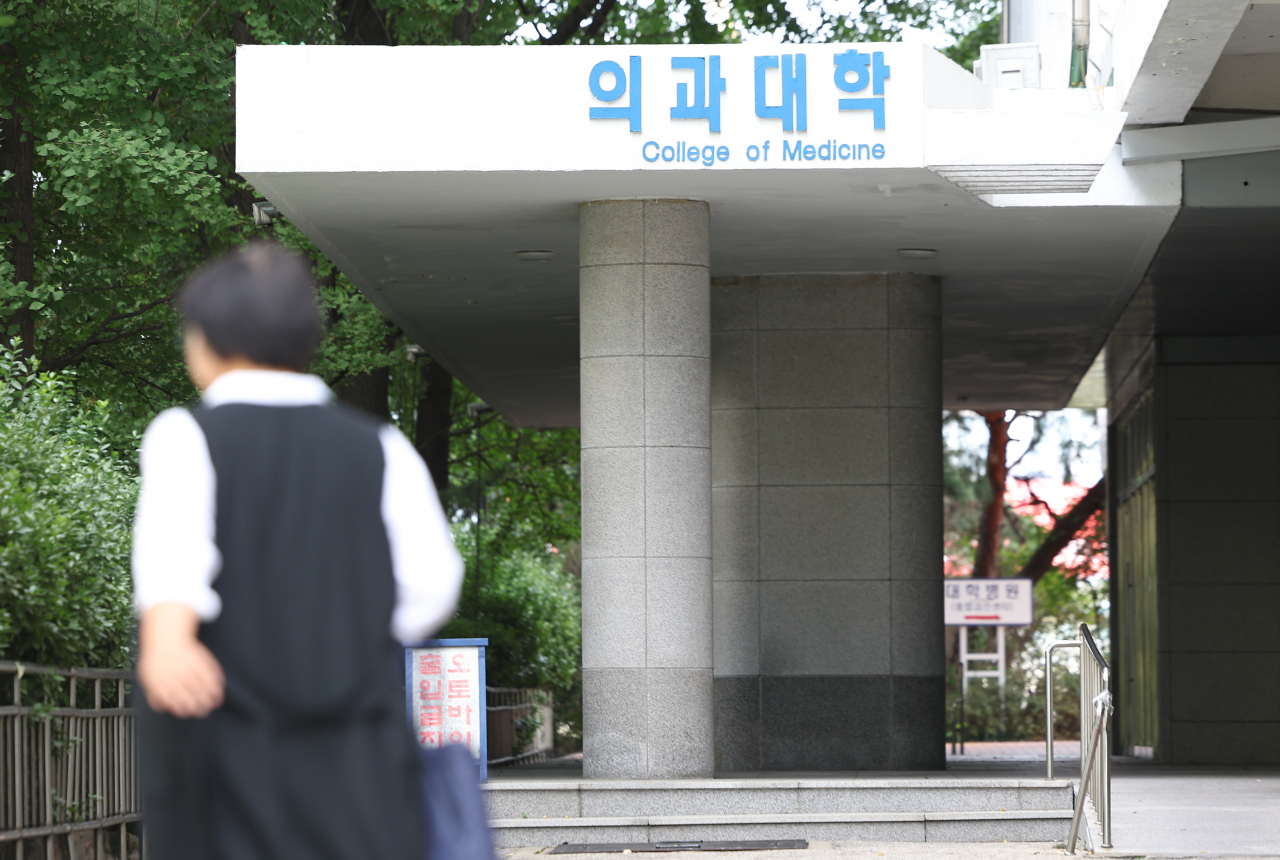 |
A medical school in Seoul (Yonhap) |
Amid uncertainties in the landscape of medical education in South Korea following the government's plan to hike the admissions quota, Education Minister Lee Ju-ho on Sunday vowed to ensure the quality of medical education while pleading with medical students now in their ninth month of a strike against the plan to return.
In a Korean-language interview with Yonhap News Agency, Lee said he "emphasizes as the education minister" that the level of medical education will remain high, shrugging off the medical circle's criticisms that the government's sharp quota hike was made without continuous consultation with the doctors themselves, resulting potentially in a decline in the quality of medical education, affecting medical care as a result.
"(The ministry) has secured five trillion won ($3.69 billion) to help enhance the educational environment of medical schools and 1,000 full-time professors will be added to state-run schools, as well as allowed flexibility in medical school's curriculum for students on leave," Lee underscored.
Lee said he thinks criticizing the government for causing the quality of medical education to decline is "unreasonable," arguing that his ministry's "top priority as the Education Ministry" is maintaining the quality of education.
Currently, over 15,000 medical students nationwide have applied for leaves of absence and boycotted classes since February to protest the policy to increase medical school admissions by 2,000 starting next year. While the students argue that taking leave is a basic right, Lee reminded them of their responsibilities as future health care professionals and their duty to contribute to society, labeling their actions as "undermining the public good." He also warned that those who do not return next year could face penalties, including expulsion.
Lee also assured that the quality of education would be maintained even with the return of students. He highlighted the ministry's "full support" through expanded investment in medical school facilities to accommodate a total of 7,500 students for first-year courses next year, including both new admits and returning students currently on leave.
Speaking on how he plans to induce students who have left classes since February to return, the minister said there has been some dialogue between university presidents and medical schools about doing that.
"There had been little progress between presidents and medical schools regarding students' return. But now that the government has granted conditional leave for students, it has fostered an environment for university administrations and medical schools to collaborate to encourage students to return," Lee said.
Conditional leaves of absence have been introduced to address the widespread protests and boycotts by over 15,000 medical students who are opposing the government's policy to increase medical school admissions by 2,000 places starting next year. In response, the Education Ministry announced on Oct. 6 that it would temporarily permit medical students to take a leave of absence on the condition that they return to school next year.
Regarding medical students refusing to take the annual state-run doctors' license exam -- a move that could worsen the health care vacuum as the number of new doctors would decrease -- the minister said he would discuss with relevant agencies whether to hold additional exams.







![[Weekender] Korea's traditional sauce culture gains global recognition](http://res.heraldm.com/phpwas/restmb_idxmake.php?idx=644&simg=/content/image/2024/11/21/20241121050153_0.jpg)